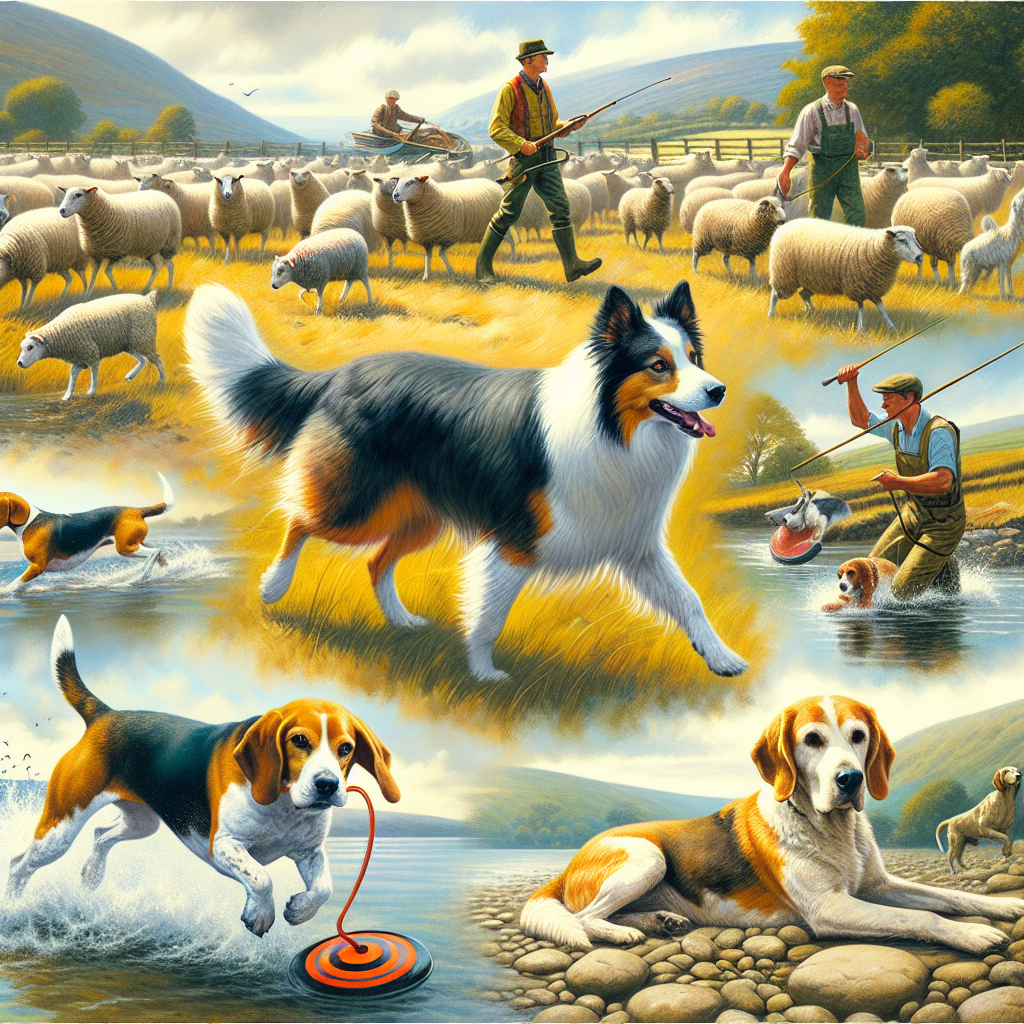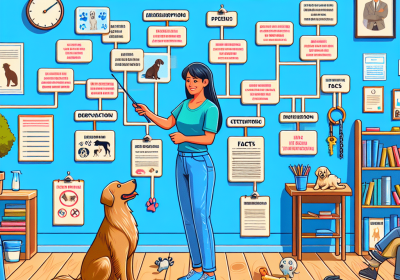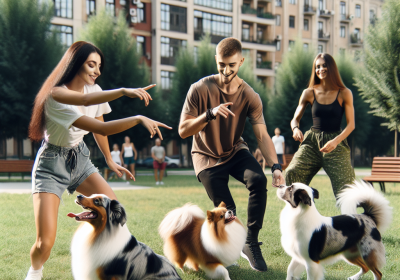Canine Freework for Specialized Breeds (e.g. Herding, Hunting)
Table of Contents
Canine Freework for Specialized Breeds, such as herding and hunting dogs, is a tailored approach to dog training that leverages the innate skills and instincts of these breeds. This method focuses on providing mental and physical stimulation through activities that mimic the tasks these dogs were originally bred to perform. For herding breeds, this might include exercises that simulate gathering and moving livestock, while hunting breeds might engage in scent tracking and retrieval tasks. By aligning training with a dog’s natural abilities, Canine Freework not only enhances their performance in specialized roles but also promotes overall well-being and reduces behavioral issues. This approach underscores the importance of understanding and nurturing the unique characteristics of each breed to achieve optimal results in both work and companionship.
Benefits Of Canine Freework For Mental Stimulation
Canine Freework, an innovative approach to dog training and enrichment, has gained significant attention for its potential to provide mental stimulation, particularly for companion breeds. This method, which emphasizes allowing dogs to explore and interact with their environment freely, offers numerous benefits that extend beyond physical exercise. By engaging a dog’s senses and cognitive abilities, Canine Freework can play a crucial role in enhancing their overall well-being.
One of the primary benefits of Canine Freework is its ability to provide mental stimulation. Companion breeds, often characterized by their close bonds with humans and their relatively sedentary lifestyles, can greatly benefit from activities that challenge their minds. Traditional training methods, while effective in teaching obedience and specific skills, may not always address the need for mental engagement. Canine Freework, on the other hand, encourages dogs to think, problem-solve, and make decisions independently, thereby fostering cognitive development.
Moreover, Canine Freework can help alleviate boredom, a common issue among companion breeds. Boredom can lead to a range of behavioral problems, including excessive barking, chewing, and other forms of destructive behavior. By introducing a variety of stimuli and allowing dogs to explore at their own pace, Canine Freework keeps their minds occupied and reduces the likelihood of boredom-induced issues. This approach not only enhances the dog’s quality of life but also contributes to a more harmonious household environment.
In addition to mental stimulation, Canine Freework promotes sensory enrichment. Dogs rely heavily on their senses, particularly their sense of smell, to understand and interact with the world around them. Canine Freework activities often involve scent trails, varied textures, and different objects, which can stimulate a dog’s olfactory and tactile senses. This sensory engagement is particularly beneficial for companion breeds, as it provides an outlet for their natural instincts and helps them stay mentally sharp.
Furthermore, Canine Freework can improve a dog’s confidence and reduce anxiety. Many companion breeds are prone to anxiety, especially when faced with new or unfamiliar situations. By allowing dogs to explore and interact with their environment in a controlled and positive manner, Canine Freework helps build their confidence. This gradual exposure to new experiences can reduce anxiety and make dogs more adaptable to changes in their surroundings. Consequently, this can lead to a more relaxed and well-adjusted pet.
Another significant advantage of Canine Freework is its potential to strengthen the bond between dogs and their owners. Engaging in Freework activities together fosters a sense of partnership and mutual trust. Owners can observe their dogs’ preferences and behaviors, gaining valuable insights into their personalities and needs. This deeper understanding can enhance the human-animal bond, leading to a more fulfilling and rewarding relationship.
In conclusion, Canine Freework offers a multitude of benefits for companion breeds, particularly in terms of mental stimulation. By providing opportunities for cognitive engagement, sensory enrichment, and confidence-building, this approach addresses the unique needs of companion dogs. Moreover, it helps alleviate boredom, reduce anxiety, and strengthen the bond between dogs and their owners. As such, Canine Freework represents a valuable tool for enhancing the overall well-being of companion breeds, ensuring they lead happy, healthy, and enriched lives.
Tailoring Canine Freework For Specialized Breeds

Canine Freework, a concept that emphasizes allowing dogs to engage in natural behaviors and activities, has gained significant traction among dog owners and trainers. This approach is particularly beneficial for specialized breeds, such as herding and hunting dogs, which have unique instincts and needs. Tailoring Canine Freework for these breeds requires a nuanced understanding of their inherent traits and a commitment to providing activities that align with their natural inclinations.
Herding breeds, such as Border Collies and Australian Shepherds, possess an innate drive to control the movement of other animals. This instinct can be harnessed through Canine Freework by incorporating activities that mimic herding scenarios. For instance, structured play sessions involving the movement of objects or other animals can provide mental stimulation and physical exercise. Additionally, agility courses that require quick decision-making and precise movements can be particularly engaging for herding breeds. These activities not only satisfy their herding instincts but also promote overall well-being by preventing boredom and reducing stress.
On the other hand, hunting breeds, such as Labrador Retrievers and Beagles, have a strong prey drive and an exceptional sense of smell. Tailoring Canine Freework for these breeds involves activities that allow them to utilize their olfactory abilities and hunting instincts. Scent work, where dogs are trained to locate specific scents, can be an excellent way to engage hunting breeds. This activity not only taps into their natural abilities but also provides a mental challenge that keeps them engaged. Furthermore, retrieving games, where dogs are tasked with finding and bringing back objects, can be particularly rewarding for hunting breeds. These activities not only fulfill their instinctual needs but also strengthen the bond between the dog and the owner.
Transitioning from the specific needs of herding and hunting breeds, it is essential to consider the broader principles of Canine Freework that apply to all specialized breeds. One of the core tenets of Canine Freework is the emphasis on choice and autonomy. Allowing dogs to make decisions about their activities can lead to increased confidence and a stronger sense of well-being. For specialized breeds, this means providing a variety of activities that cater to their unique instincts and allowing them to choose which ones they prefer. This approach not only respects the dog’s natural inclinations but also fosters a more harmonious relationship between the dog and the owner.
Moreover, it is crucial to recognize the importance of mental stimulation in Canine Freework. Specialized breeds often have high levels of intelligence and require activities that challenge their minds. Puzzle toys, interactive games, and training sessions that involve problem-solving can be particularly beneficial. These activities not only keep the dog mentally engaged but also provide an outlet for their energy and prevent behavioral issues that may arise from boredom.
In addition to mental stimulation, physical exercise is a vital component of Canine Freework for specialized breeds. Herding and hunting dogs, in particular, have high energy levels and require regular physical activity to maintain their health and well-being. Incorporating activities such as long walks, runs, and play sessions into their daily routine can help meet their exercise needs. Furthermore, activities that mimic their natural behaviors, such as herding trials or hunting simulations, can provide both physical and mental benefits.
In conclusion, tailoring Canine Freework for specialized breeds involves a deep understanding of their unique instincts and needs. By providing activities that align with their natural behaviors, allowing for choice and autonomy, and ensuring both mental and physical stimulation, owners can create a fulfilling and enriching environment for their dogs. This approach not only enhances the well-being of specialized breeds but also strengthens the bond between the dog and the owner, leading to a more harmonious and rewarding relationship.
Read more about Canine Freework
Canine Freework Activities for Different Dog Breeds
– Canine Freework for Large Breeds
– Canine Freework for Small Breeds
– Canine Freework for Working Breeds
– Canine Freework for Companion Breeds
– Canine Freework for Specialized Breeds (e.g. Herding, Hunting)






![The Dog Podcast Uncovers Startling Truths About What We Feed Our Dogs [Press Release]](https://storyforge.com.au/wp-content/uploads/2024/08/dogfood-400x280.jpg)


